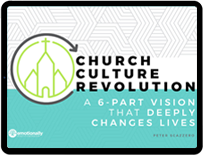Shame and Leadership
Marjorie Thompson, in The Way of Forgiveness (Upper Room Books), distinguishes between guilt and shame. She notes that guilt is about what we have done (“I did something bad”) while shame is about who we are (“I am bad”). Recognizing we’ve made a mistake, i.e. guilt, is very different from believing we are a mistake, i.e. shame. This led me, this past year and a half, into an exploration into shame –in Scripture, in my own life, in conversations with seasoned therapists, and to researchers of shame like Brene Brown. Shame is cruel. Like a hidden taskmaster, it drives us to overachieve, overwork, overcompensate, and protect ourselves with a face that is not our own. Shame is, at its essence, demonic. We can’t lead well without resisting the shame-based messages that come to us from the culture, our churches, our failures, and inside our own head. We can’t lead well when we feel deeply flawed. Read more.





